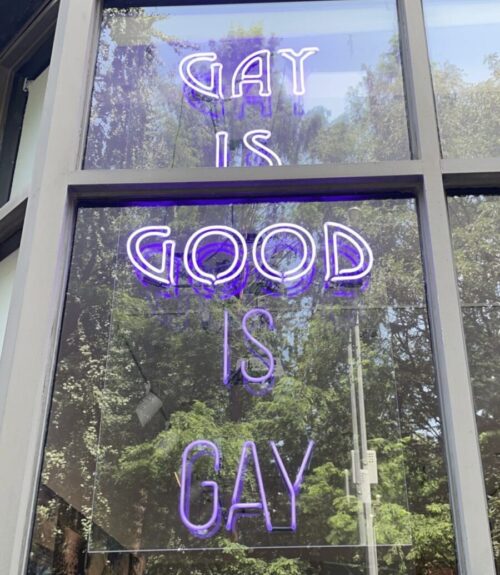Lifestyle & Culture
Gender, sexuality labels confuse some, give clarity to others
By Jayden Perera
Male, female, transgender, gender neutral, non-binary, agender, pangender, genderqueer, two-spirit, third gender … Those are some of the labels for sexual identity and gender identity, which are two different categories.
Some people say they understand some but not all of the labels. Some people accept all the labels. Some think some of the labels are unnecessary.
“There are some, like, sub-sexualities that’s been created that I don’t know the names of, but they also confuse me,” said Mia Stephenson, 17, a California high school journalist, attending the School of The New York Times’ Summer Academy 2023.
She kept explaining her take on those labels as she stood while visiting NYU’s Kimmel Center for University Life. “I am supportive of everyone; I just need someone to explain it to me.”
During the last 40 years, acceptance of LGBTQ+ people has risen in 56 out of 175 countries, according to researchers at the UCLA Williams Institute. Their study, published in November 2021, also found that, in 62 of those countries, there was no change in the level of acceptance; and in 57 nations, there was a decrease in acceptance. The United States ranked 23rd among those 175 nations in what researchers called an “average LGBTI acceptance index score.”
Psychcentral.com lists its “Glossary for LGBTQIA+ Terms: Why Language Matters.” “Folks with varying sexualities and gender identities have always existed,” according to that website, which is run by Medical News Today. “Tolerance and education have increased in recent times, leading people to feel more comfortable being themselves and asking for the respect they deserve.”
For some, that argument may be true. Nevertheless, there’s also confusion about what seems an ever-growing list of labels that seem to come out of nowhere. For example, said Stephenson, of the Times summer academy, she saw someone on TikTok claim “bubble/bubbleself” as pronouns in the same way, for example, that he/him are preferred pronouns.
“It was, like, I kept getting videos on my ‘for you’ page that were, like ‘If you don’t accept my pronouns as bubble/bubbleself, you’re homophobic.’ And I did not know what was going on” she said.
Author and broadcast journalist Patrick Riley, 52, who lives in New Jersey, said he’s also getting familiar with terms that didn’t exist when he came out. “As a gay man from the South who is the age that I am, I am still learning the expansiveness of the queer glossary.” Over the years, he’s sometimes gotten odd responses, even insults, about being gay, said Riley, who is from Savannah, Georgia. In fact, it took him some time to accept who he is.
“I’ve only had this agency of being gay and not really caring what people think for maybe 20 years now,” Riley said.
“What it means,” added Riley, a TV producer and writer, “to be gay in 2023 is a lot more than what it meant to be gay even 10 years ago but that’s because we’re finally unpacking that as a society.”
At least some people are. Alex Loewe, 15, of London, England, also a Times summer academy student, said she is not so plugged into the whole discussion.
“It’s not really any of my business,” Loewe said. “So, I don’t really care what you do.”



